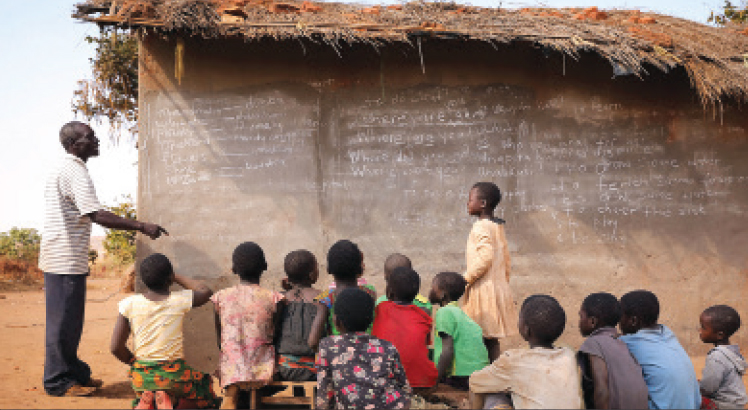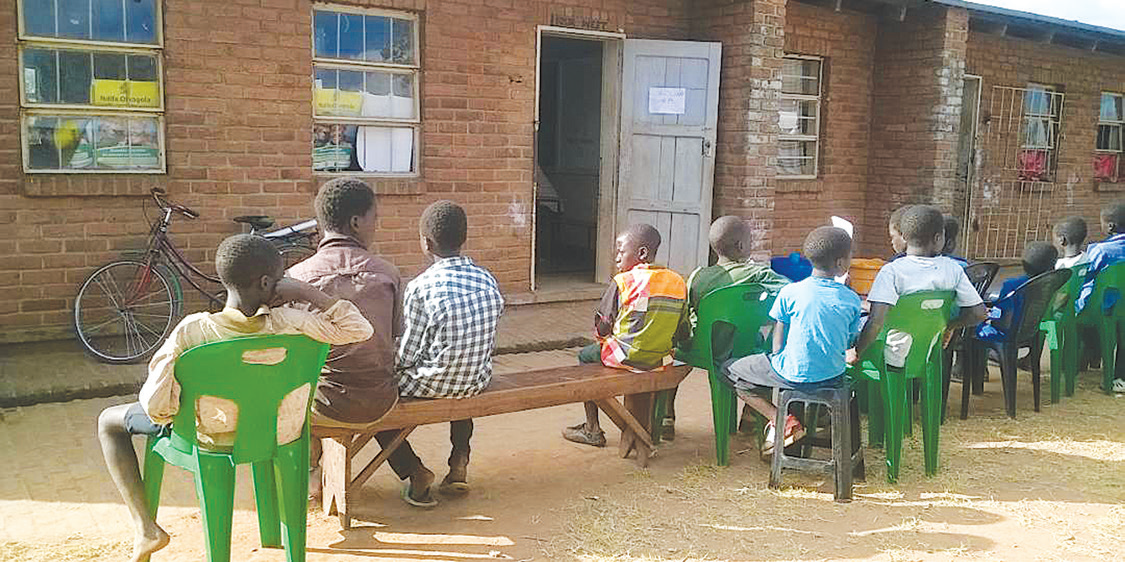Agriculture, education reforms on rocks
As a five-year Public-Sector Reforms Policy expires this year, Nation on Sunday preliminary findings show that key agriculture and education reforms have flopped.
The policy, launched in 2017, was developed to guide the formulation and implementation of reforms to transform the country’s economic and service delivery.
Our assessment focused on contracts which the ministries of agriculture and education signed with President Lazarus Chakwera in 2020.
The Ministry of Agriculture, according to the contracts, has three reform areas: transformation of agriculture production and agricultural marketing and value, enactment of enabling agricultural policies and Acts.
The transformation of agriculture production reform area aims to increase agriculture productivity by doubling the yields of cereals, legumes, roots and tubers, oil seeds, horticulture and livestock value chains.
The annual production for such crops has not doubled. If anything, there has been stagnation or slight increases in yields in the past two years.

Cereals production, for example, was at 4.1 million metric tonnes in 2020 but dropped to four million this year, according to the Food and Agriculture Organisation.
Key to implementation of the reforms was the identification and rehabilitation of 20 existing Department of Animal Health and Livestock Development (DAHLD) infrastructure, enhancing mechanisation and establishment of mega farms by June 2022.
These have not been fully implemented. The Ministry of Agriculture spokesperson Gracian Lungu attributed the failure to financial and technical barriers.
Main initiative under the agricultural marketing and value was restructuring of the Agriculture Development and Marketing Corporation (Admarc) by June 2021. This, it was expected, would lead to having a parastatal that does not financially stress much the Treasury.
This has not happened as evidenced by Admarc seeking over K30 billion from the Ministry of Finance in the 2022/23 National Budget.
On the enactment of enabling agricultural policies and Acts reform, out of the 12 frameworks which focus on improved land, horticulture and livestock management, only half have been operationalised.
In a written response, The Civil Society Agriculture Network (Cisanet) national director Lillian Saka said the agriculture reforms, whose overall deadline is this December, are way off the mark.
She explained: “We are behind with these reforms, and it’s highly unlikely that by the due date, these commitments will be met.
“On the issue of enacting laws and policies some have been approved, for example, the Seed Act though not yet operational but the National Agriculture Policy is still not there, the Food and Nutrition Bill still not enacted so there are gaps.”
Saka further observed that little progress has been made on the agricultural marketing and value reform area which seeks to scale up value added products.
“Increased agro-processing also has not been achieved—infrastructure, energy and poverty are some of the challenges. These commitments are still relevant but need more commitment and planning to deliver,” she said.
Meanwhile, the Ministry of Agriculture spokesperson has said though there have been delays to implement all the reforms, they are still working tirelessly to fulfill them.
He said: “Some of the projects such as establishing and rehabilitation of livestock centres were detailed because we were waiting for the legal framework; the National Livestock Development Policy. Since it has been rolled out, we are good to go.
“Overall, I think we have done well in implementation of the reforms. Our failure to fully achieve all of them is due to financial challenges as well as technical issues because, for example, some reforms required the approval of other ministries such as the Ministry of Justice.”
The education sector lined up seven reforms centred on improving operations of the schools, regulating diplomas and degrees to eliminate illegal qualifications and welfare of teachers.
The reform on teachers aims to improve working conditions for teachers through adjusting remote allowances for primary school teachers; improved processes for promotion.
It was also meant to result in introduction of the Teachers’ Council of Malawi which has been established while the remote allowances have stagnated at K10 000 for years now.
Observers have been blaming poor teachers’ working conditions as key factor in poor education standards in the country.
In an interview, Teachers Union of Malawi (TUM) president Willy Malimba said that teachers’ motivation reform area has failed as teachers still work under tough conditions.
“Teachers are still live in poor houses and a majority of them have worked for many years without promotion. The hardship allowance for the teachers is still at K10 000. If anything, the teachers are more demotivated now,” he said.
The other reform area was to establish the Malawi Qualifications Authority (Maqa) to address fake qualifications from non-accredited institutions.
“There is also a large number of professional qualifications issued by national and foreign institutions that require evaluation and validation,” the contract between the ministry and the president reads.
However, Maqa and Teachers Council, which is designed to look for the welfare of teachers, have not been established at the expiry of the contract in June this year.
The Ministry of Education had not responded to our questionnaire as we went to press yesterday.
Meanwhile education analyst Limbani Nsapato described the Ministry of Education reforms implementation as a failure.
He said: “Most of the commitments are just in the pipeline. They have just been initiated, but we are not really getting to the core of what was supposed to be achieved.
“Teacher welfare and development is an area where a lot has to be done. The ministry has also been talking about establishing the National Teachers Council. Now this is towards the end of that contract period, we have not seen the council.
“I would grade the ministry’s performance four out of 10. They need to pull out their socks. For this period of 2020-2022, the ministry or government to achieve what it committed to do through the contract.”
The Edukans Foundation country director blamed the failure of the reforms on poor funding, saying the Treasury has not been committing enough resources.
Another education expert Steve Sharra also pointed out that the reforms have not been implemented successfully.
He said: “There has been good progress on some of the contractual obligations, and not much movement on others. Reform areas that have registered some publicly visible progress, albeit partial, include evidence informed policy and decision making, teacher welfare, university selection, and the functional review of the directorates.”






One Comment